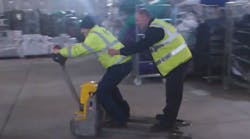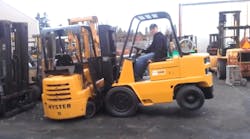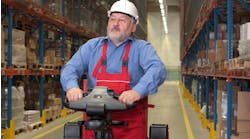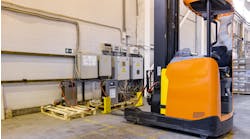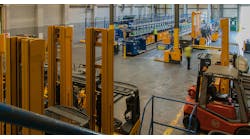If “certificate” were a person instead of a word, it would be bloody from the abuse it has received in the logistics world. A certificate is a piece of paper that lists the skills a person has been trained in. If the words on that paper include forklift, warehouse or supply chain, that paper carries extra value because those words represent skills highly coveted by employers—therefore, that certificate is highly coveted by job seekers. This little piece of paper ends up with lots of creases and fingerprints on it once it goes through the job search process. But this beaten-up scrap—and the word “certificate” that’s applied to it—are not only abused, they’re misused. In fact they’re often caught up in outright lies.
Chris Caplice doesn't like this word as applied to what his organization does, but is forced to use it to sell his new online education program. He’s executive director of the MIT Center for Transportation & Logistics (MIT CTL), which now offers an on-line series of courses labeled SCx. The SCx curriculum is part of the MITx initiative, the Massachusetts Institute of Technology’s selection of online courses in several disciplines. As MIT’s press release explains, “The SCx is one of the first ‘XSeries’ offerings that award certificates for successful completion of an entire sequence of courses.”
There’s that word—certificates. So why does Caplice use it so grudgingly?
“A certificate means I’m certified to solve this specific task under these conditions with this equipment,” he explains. “What we try to do here on the education side, although we provide certificates, is to help someone understand fundamental relationships. We’re not trying to educate people on setting min/max levels based on x and y, but on better ways to do things. If you understand how competing forces work then you can evaluate new situations.”
MIT’s online program takes students through fundamentals, supply chain design and supply chain strategy. It’s aimed both at students and at professionals looking to attain more marketable skills. So where does material handling fit into this framework? Nowhere—yet. Caplice told me material handling is not one of MIT’s areas of expertise, so it didn’t want to rush it into their new program. It will be introduced into the fundamentals program in the next go-around. And while Caplice isn’t sure what will be included in the material handling portion, he knows what won’t be.
“I can guarantee you we will not take on forklift operation,” he said. “We’re not the guys for that. An online program is not the route for that. However, warehouse design and understanding the tradeoffs between types of equipment—that’s more managerial. We are not trying to replace APICS certification.”
Nevertheless, his program will offer certificates because that’s what employers—particularly the human resources departments doing the screening—demand. And when it comes to forklifts, their desire for that piece of paper seems even stronger. They equate a certificate with the commercial driver’s license truckers must carry, and both truckers and skilled forklift operators are in short supply lately. That’s why unemployed people who might have once driven a forklift are so desperate to get one of those pieces of paper.
“Desperate people will say things to get a job,” says David Hoover, president of Forklift Training Systems, and another hater of the way the word “certified” is abused as applied to forklift operators. “Employers are often desperate to fill those jobs and when those two desperations meet and the conditions aren’t right, bad things can happen to people.”
Hoover says H.R. should involve their company’s safety people and trainers when making material handler hiring decisions.
“An experienced trainer should be able to tell if the person’s explanation of his experience is true if they are able to test their hands on abilities up front,” he adds. “But H.R. people often ask questions like ‘Do you have a current forklift license?’ We don’t have a forklift operator licensing procedure in the U.S., so that’s a ridiculous question. We have a certification procedure. And with lift trucks you have several classes of equipment. Employers need to quantify how long ago a candidate operated these trucks and what kinds of trucks.”
But it’s too easy these days to go online, take a course and get a certificate—not only saying you’re a forklift operator, but an OSHA-certified forklift operator. If you take anything away from this blog, take this: OSHA does NOT certify, approve or endorse trainers or training programs. OSHA does identify qualified trainers as those who have satisfactorily completed an instructional program (train-the-trainer) or who otherwise have the academic credentials and instructional experience necessary to teach a program. But it is up to the employer to certify that their workers have been trained to operate their equipment—not OSHA. And you’d better be able to certify that fact if OSHA ever shows up at your door to investigate whatever mess that “certified” operator made.
Go to our gallery detailing the Dangers of Forklift Certification Mills--Caught on Video.


